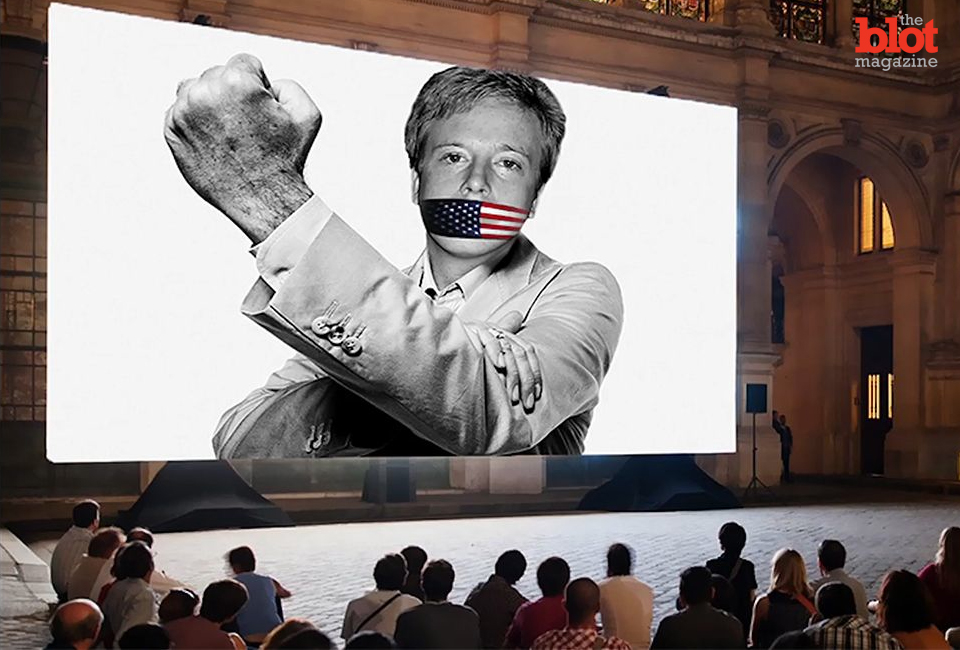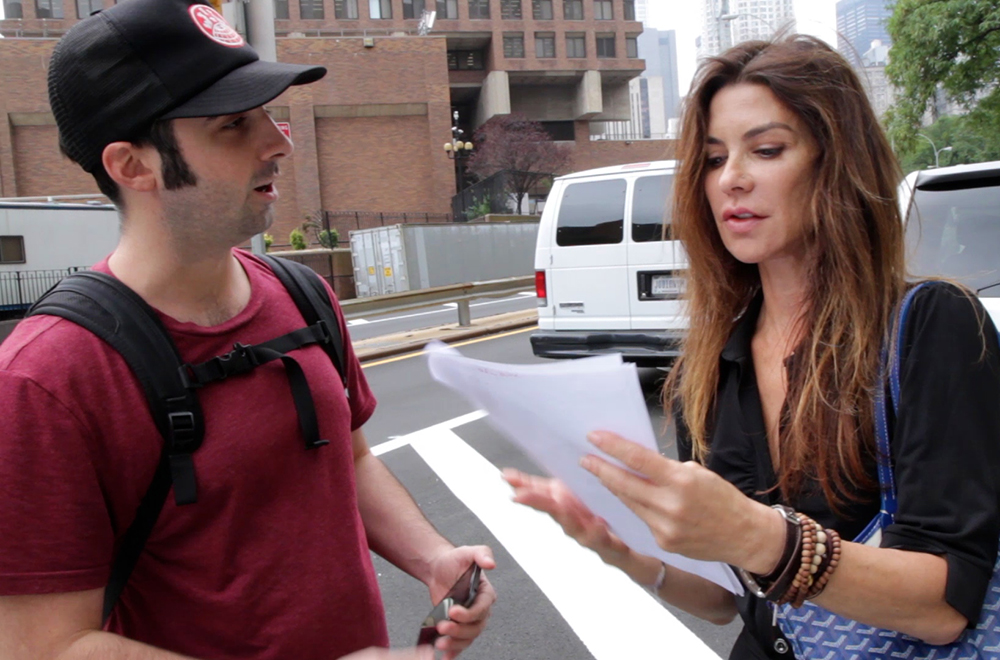
If you don’t want the government to know something about you, don’t talk on the phone, don’t e-mail, don’t text and don’t trust anyone. Sound paranoid? Go see “The Hacker Wars,” a documentary about the chilling facts regarding U.S. government surveillance. It’s worse than you thought.
Thanks to director Vivien Lesnik Weisman, we get a rare view into the dismal truth. We hear from NSA whistleblower Thomas Drake, two Pulitzer Prize-winning journalists, Glenn Greenwald and Chris Hedges, professors and Anonymous lawyer Jay Leiderman. But the stars of the film are three of the most prominent hactivists post-WikiLeaks: Andrew “weev” Auernheimer, Barrett Brown and Jeremy Hammond, who have all been embroiled in legal woes for trying to defend Americans’ rights.
Born in Cuba, but raised in America, Weisman has an impressive background. She earned an MFA from the UCLA School of Theatre, Film and Television, went to New York Law School and studied political science at Barnard College. Her previous documentary, “The Man of Two Havanas,” was about her father, activist and journalist Max Lesnik.
TheBlot Magazine caught up with Weisman to talk about “The Hacker Wars.”

Dorri Olds: What made you want to tell this story?
Vivien Lesnik Weisman: My last documentary that played at Tribeca was about my father, a revolutionary. He had a magazine that was bombed 11 times, but he never backed down. That reminds me of these revolutionaries. It reminds me of Jeremy Hammond and Barrett Brown, who was a journalist. He had this project where he was investigating the intelligence contractors, and he knew he was going to get in trouble even though he wasn’t breaking any laws. He knew it. He went forward anyway. In my film, Greenwald said what Brown was doing was the future of journalism because when you have so much data, whether it’s leaked data like with Snowden or hacked data like with Anonymous, that you have to crowdsource it like Brown was doing.
Can you explain?
There’s a lot of similarities between Snowden and other NSA whistleblowers. Chelsea Manning and Edward Snowden were leakers from the inside. They had security clearance. They saw something was wrong, and they called journalists to release the information. The politically motivated hackers are from the outside. They breached the system. They were never granted access. The hackers have the skills to come in and break into computer systems and release information. But it’s the same. It is releasing information in the name of the people, and that is what is detrimental to the government.
After doing all of this research, how do you feel about the U. S. government?
I’m going to quote someone in my film. Thomas Drake, the NSA whistleblower, said, “The United States has unchained from the Constitution, this is an alien form of government.” The hackers are trying to amend the relationship between people and their government because right now, it’s about the ruler and the ruled. That’s not the way a democracy is formulated. A democracy is based on the people getting the power to their government. There is a mantra within the hacker community that information must be free.
Why do you think the court ordered “weev” to undergo mental-health examinations?
I think it’s all part of a campaign that’s as old as propaganda. Whenever someone is disruptive to the system, to the status quo, it’s part of what the state does, it brands them as crazy. That was one of the things, when I was at his sentencing hearing, that struck me. Just like you, I was asking why. No journalist ever picked up on that. I’m really glad you did.

I didn’t see any sign of mental illness. I saw a young man who wanted to change the world and believes very strongly in what he is doing.
One of the most threatening things to the system is when people are willing to go to prison. In my film, you see three guys, Jeremy, Barrett Brown and weev. They know they’re going to prison, and they’re OK with it. They can’t live in a society where you can’t protest or resist. It’s more important to them than their freedom. The most subversive thing about the hacktivists and about weev and the other two protagonists in the film is like when Jeremy knew he was going to prison and said, “I had to work fast at hacking Stratfor because I know they’re going to stop me.” Barrett Brown says to me in an interview that’s in the film, “Now that I am in prison — I want to know how I can be the most effective from here.” So, you’re willing to go to prison, and even when you go to prison and they take away your freedoms, you still don’t apologize. That is very, very rare and very powerful.
That seems the only way to make any kind of social change. In the civil rights movement and the women’s movement, for example, people were willing to be treated so horribly because they believed in something.
Yes, exactly.
Bottom Line:
Everything you’re doing is being watched, and if you catch the government breaking laws and make it public, you better have a suitcase packed for 105 years in jail — just in case.
“The Hacker Wars” opens Friday Oct. 17. Unrated. 91 min.
Watch the trailer:
Dorri Olds is a contributing journalist for TheBlot Magazine.





